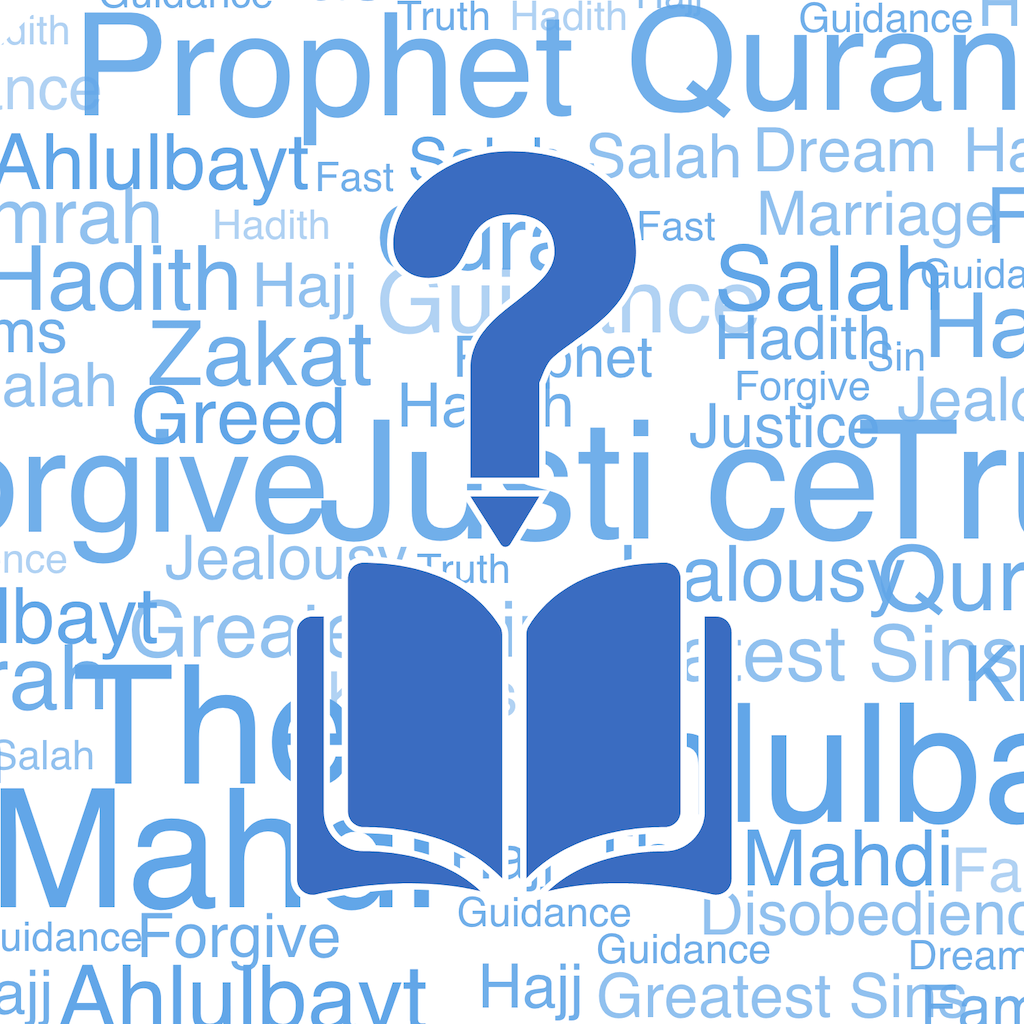Sheikh Mujtaba Khaliq

Public QnA
It is not in itself obligatory. However, if by voting, you would be promoting justice, and somehow stopping oppression and injustice, and by not voting, you are being indifferent, it may become obligatory, regardless of where you live.
Good observation. The first thing is that the item that is usurped specifically from a person has a known owner and the one selling it knowing that is committing direct oppression. Items in a store of somebody who does not pay what is due from his wealth are not all usurped. Though they are mixed. Also no specific owner is known and no direct oppression with full acknowledgment is occurring
Yes, you can wear them
There is no ruling that nullifies Divorce during anger. However, in our school Divorce has conditions. Number one the wife has to be in a pure time. In other words she cannot be during her menstrual periods. Secondly, since her last menstrual . No intimacy should have occurred. Lastly, Divorce requires two just witnesses. Without the presence of witnesses divorce is not valid.
Yes
It is OK to advise based on your observations.
The recommendation in prayers is to say Salam to the prophet and then Finish with the third one. The third one on its own is sufficient and with it prayers end. Adding the second salam is recommended as well and in itself saying salam to the holy family peace be upon them is recommended. I have not come across a specific one for the additions. It would be simply saying Salam and the names of the purified ones.
You can get the price based on a similar item
If you recited the contract of marriage between yourselves, it is fine. Scholar or one who is knowledgeable enough to know the rules, and the proper pronunciation of the contract is very advisable to avoid errors However, if two people recite the contract properly, it is valid
Cake and sweets are ok. Music that is suitable for sinful gatherings and dancing is not ok
He was definitely a believer and a divine king It appears to have been Sirus or Koorosh God knows best
Reply with Salamun Alaikum,
Yes. Unless there’s concern over a secondary issue like animal abuse and so on
If there is no lustful talk and no fear of committing any sins, it’s fine
The value of the action is based on the knowledge and the sincerity and purity of the heart. Hakim neishaboory and thahaby are both Sunni scholars and they consider it authentic. In our books it’s one of the very authentic ahadeeth. Regarding the texts that refer to it: in "Kanz al-Ummal" Vol. 12, p. 219, "Tarikh Baghdad" Vol. 13, p. 19, "Maqtal al-Hussein" by al-Khwarazmi, p. 45, "Mustadrak al-Hakim" Vol. 3, p. 32 with its summary by al-Dhahabi in the margin, "Al-Manaqib" by al-Khwarazmi, p. 58, "Manaqib Aal Abi Talib" Vol. 3, p. 138, "Sharh al-Mawaqif" Vol. 8, p. 371, "Fara'id al-Samtayn" Vol. 1, p. 256, "Shawahid al-Tanzil" (Tahqiq, 1411 AH) Vol. 2, p. 14, "Al-Ghadir" from some of what preceded, and from "Hidayat al-Murtab" p. 148, "Tafsir al-Kabir" by al-Razi Vol. 32, p. 31, "Fada'il al-Khamsa" from the Six Authentic Books Vol. 2, p. 323, "Habeeb al-Seer" Vol. 1, p. 362, "Yanabee' al-Mawadda" p. 94, 95, and 96, "Sa'd al-Sa'ood" p. 139, "Al-Tar'if" p. 60, "Kanz al-Fawaid" by al-Karajki p. 137, "Al-Seerah al-Halabiyya" Vol. 2, p. 319 and 320, "Sharh al-Maqasid" by al-Tafsazani Vol. 5, p. 298, "Firdaus al-Akhbar" Vol. 3, p. 455, "Nafahat al-Lahut" p. 91, "Majma' al-Bayan" Vol. 8, p. 343, "Al-Bihar" Vol. 41, p. 91 and 96 = = Vol. 20, p. 205, "Ihqaq al-Haqq" (Appendix) Vol. 8 and Vol. 6, p. 5, Vol. 16, p. 403, from some of what preceded, and from "Hayat al-Hayawan" (Cairo edition) p. 274, and from the following sources: "Nihayat al-'Uqul" (manuscript) p. 114, "Rawdat al-Ahbab" by al-Dashitki (manuscript) p. 327, "Tajhiz al-Jaysh" by al-Dahlawi (manuscript) p. 407 and 163, "Miftah al-Najah" p. 26, "Tarikh Aal Muhammad" by Bahjat Afandi p. 57, "Manaqib Ali" p. 26, and "Wasilat al-Najah" p. 84.
After removing the actual urine rinse and squeeze twice with kurr and three times with less. Washing machines rinse enough times, and there is no need to worry
The state of major ritual impurity (janabah) occurs in a girl or woman in the following cases: If penetration occurs (sexual intercourse). If ejaculated liquid is discharged from her, whether this happens through intercourse or other means such as foreplay and kissing. Ejaculation usually occurs when the female reaches the climax of sexual pleasure.
If the one offering you, the rebate is breaching the terms of their contract, then it is their issue not yours. If, however, by you accepting it, you are also breaching the terms of your contract with the provider then you should not be doing it
In terms of making up prayers and fast, you should make up the minimum that you know you have missed. As for the kaffarah, if you did not know, that fasting was obligatory you don’t have to pay it. If you knew then you would have to pay it.
They are not necessarily void however, I suggest that you give more priority to learning about the principles and the practical issues of our religion, because this is necessary for our eternal abode rather than the short stay in this perishing world
Satan often whispers. We need to make sure we assess the thoughts that come to our minds and see if it is in line with pleasing the almighty God, or the opposite. You are correct if we think of our day-to-day transactions during prayers, we are listening to Satan and our whims and desires
I don’t believe they leave any residuals. Therefore, it is not a barrier
If, based on the jurisprudence of the slaughterer what they are doing is sufficient, then it would be fine for other Muslims to consume. The method considered for slaughtering is: that the four jugulars are completely cut off. It is not sufficient - as a precaution to be necessary - to slit them rather than cut them, nor to cut the throat alone. Cutting the jugulars is not achieved unless the cutting is from under the knot called the “nut.” The four jugulars are: the esophagus (the passageway for food and drink), the throat (the respiratory passage), and the two thick veins surrounding the throat.
If someone is defending their home and their family, then obviously it would be a good deed. Joining militias and political parties is questionable and could be dangerous
Not unless there was a penetration
It refers to those who oppose and fight the believers
1) If you wiped with wet hands you don’t need to check afterwards 2) You just need to wash the surface and there’s no need to check
There’s no problem gifting her In Christmas
In the same page as this narration there are other narrations that state it is recommended. The scholars have given explanations for it. One is that it was made for the gems for the day itself given the context. Another is the narrator being diplomatic. Nevertheless, since it’s one and only one and the rest of narrations in this category, suggest otherwise, it cannot be taken as a ruling.
Not in the order of these other books. There are grading of narrators and compilations of watch some scholars consider more authentic.

